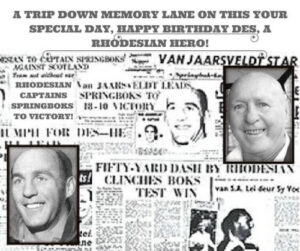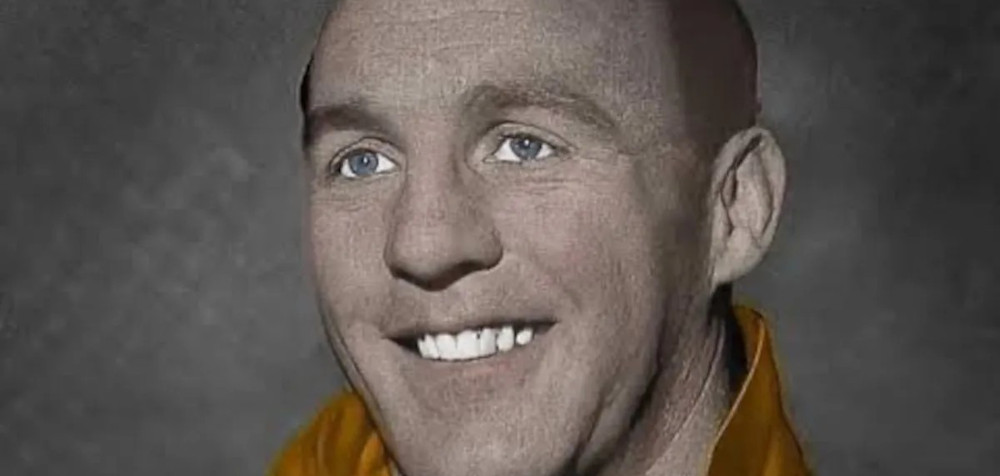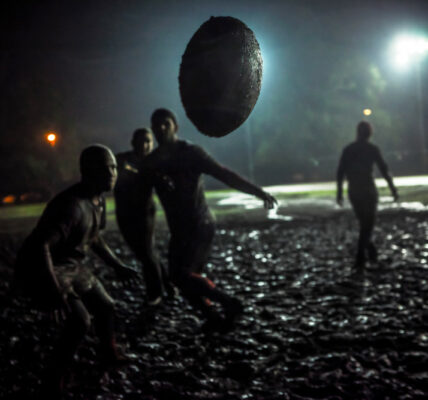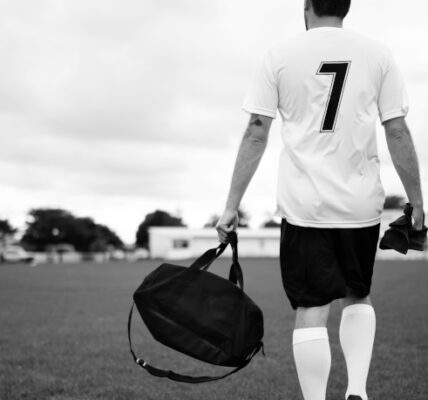Des van Jaarsveldt passed away on July 21, 2025, at the age of 96. In the world of rugby, where history is often written in sweat, scars, and stadium cheers, his name carries a special kind of weight, a name not just remembered for stats or trophies, but for what it dared to represent in a complicated time. Born in 1929 in Bulawayo, Rhodesia, now Zimbabwe, Desmond Charles van Jaarsveldt wasn’t the kind of player bred by South Africa’s rugby elite. He wasn’t raised in the shadow of Newlands or under the bright lights of Ellis Park. Instead, he honed his talent in the dry heat and underdog spirit of Rhodesian rugby. From the outset, he wasn’t just playing the game, he was challenging its boundaries.
At just 18, van Jaarsveldt made his Currie Cup debut against Northern Transvaal, scoring all of his team’s points in a display of raw determination. Over the next 15 years, he became a cornerstone of Rhodesian rugby, representing his province 62 times. Originally a wing, he later moved into the loose forward position, a testament to both his physical evolution and his tactical mind. But it wasn’t just about the number of matches played, it was about the way he played them, fearless, thoughtful, and full of conviction.
In 1960, van Jaarsveldt’s name entered the history books when he was selected not only to play for the Springboks but to captain them, an extraordinary appointment, considering he had never played a Test match before. His first cap was also his last, but it came with the rare honour of leading the national team against Scotland in Port Elizabeth. South Africa won 18–10, and van Jaarsveldt even scored a try. But behind the victory lay a deeper, more complex narrative.
Des van Jaarsveldt’s selection as captain was a controversial decision at the time. In a rugby environment dominated by Afrikaner culture and language, having a Rhodesian English-speaker at the helm unsettled many. He was not fluent in Afrikaans, and he delivered his team talks in English. Some players and administrators grumbled, uncomfortable with a captain who didn’t follow every cultural convention. He even chose to forgo the customary captain’s prayer, a small act, but one that marked him as someone unwilling to conform for conformity’s sake.
Those decisions, some suspect, cost him any future Springbok selections. It’s easy to believe that his limited appearances had more to do with politics than performance. But van Jaarsveldt was never bitter about it. He knew what he represented, the possibility of a broader, more inclusive Springbok identity. He showed that rugby could look beyond language and birthplace and see leadership in courage and clarity.
After his playing days, van Jaarsveldt didn’t drift away from the game. Instead, he became a coach, leading Rhodesia’s provincial team between 1967 and 1970. Later, he served as the president of the Rhodesian Rugby Union during a period of immense political upheaval, as Rhodesia transitioned into Zimbabwe. His steady hand and deep knowledge of the sport helped guide rugby through those uncertain years. He wasn’t just a player or a coach, he was a custodian of the game.
 Even decades after his retirement, van Jaarsveldt remained part of the rugby conversation. He was a frequent guest at Springbok events and in 2013, added his handprint to the South African Rugby Museum, solidifying his place among legends. His memory was not tied to a jersey count or medal haul but to a quiet kind of integrity that left its mark on everyone who heard his story.
Even decades after his retirement, van Jaarsveldt remained part of the rugby conversation. He was a frequent guest at Springbok events and in 2013, added his handprint to the South African Rugby Museum, solidifying his place among legends. His memory was not tied to a jersey count or medal haul but to a quiet kind of integrity that left its mark on everyone who heard his story.
When news of his death broke, tributes poured in from across the rugby world. SA Rugby president Mark Alexander described him as “a leader with a deep love for the game who leaves behind a wonderful legacy.” The South African Rugby Legends Association echoed that sentiment, pointing out how few can say they wore the Springbok jersey only once, but did so as captain.
Des van Jaarsveldt’s life and career stand as a challenge to the rigid structures that once defined South African rugby. He was a man out of place, and yet, precisely where he needed to be. At a time when the national team was a reflection of political lines and cultural expectations, he proved that leadership doesn’t need to speak a certain language or come from a specific province. It needs only to speak the truth, carry the team, and leave everything on the field.
His nickname, “The Bald Eagle,” captured more than just his appearance or speed. It symbolised his sharpness, his watchfulness, and his independence. Like the eagle, van Jaarsveldt was a solitary figure in many ways, aloof from the noisy machinery of South African sport but soaring above it nonetheless. He didn’t court attention. He earned respect.
There’s a certain poetry to the idea that a man who led South Africa just once could cast such a long shadow. It’s a reminder that sometimes, a single moment is enough to change how people see the game, and each other. In many ways, Des van Jaarsveldt was ahead of his time. Today, in a more diverse and open South African rugby culture, his story resonates even more deeply.
Now, as stadiums echo with the cheers of new heroes, and as captains deliver their pre-game talks in multiple languages, we owe a quiet nod to the man who proved that leadership was about more than just tradition. It was about courage, honesty, and heart.
Des van Jaarsveldt’s legacy is not one of numbers, but of meaning. In the end, that’s the rarest kind of victory.




